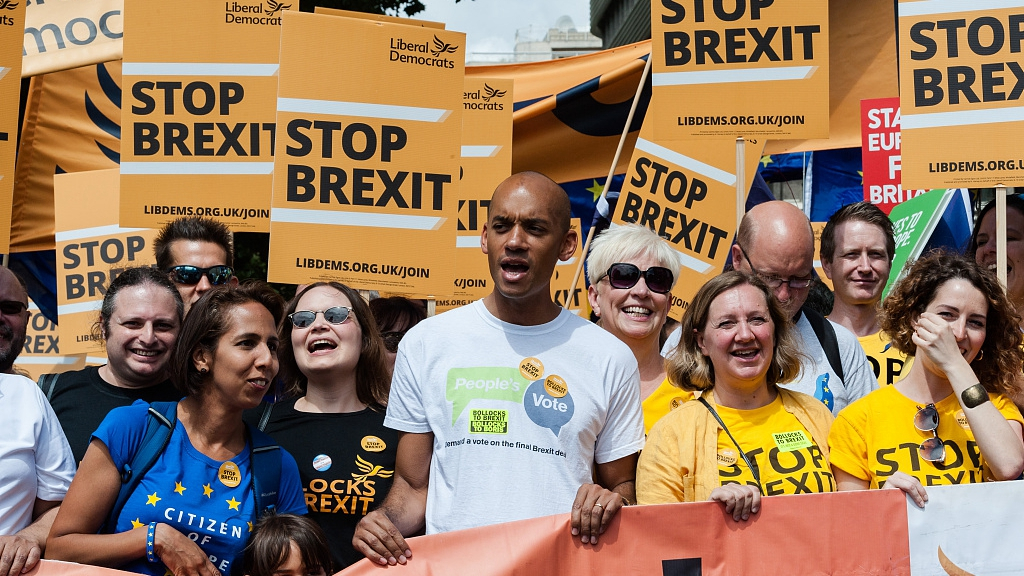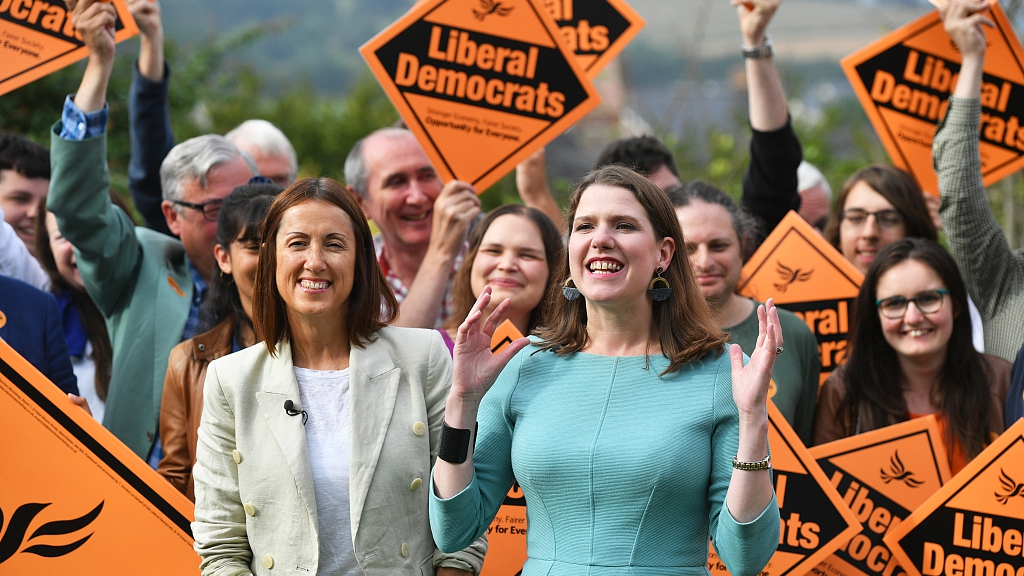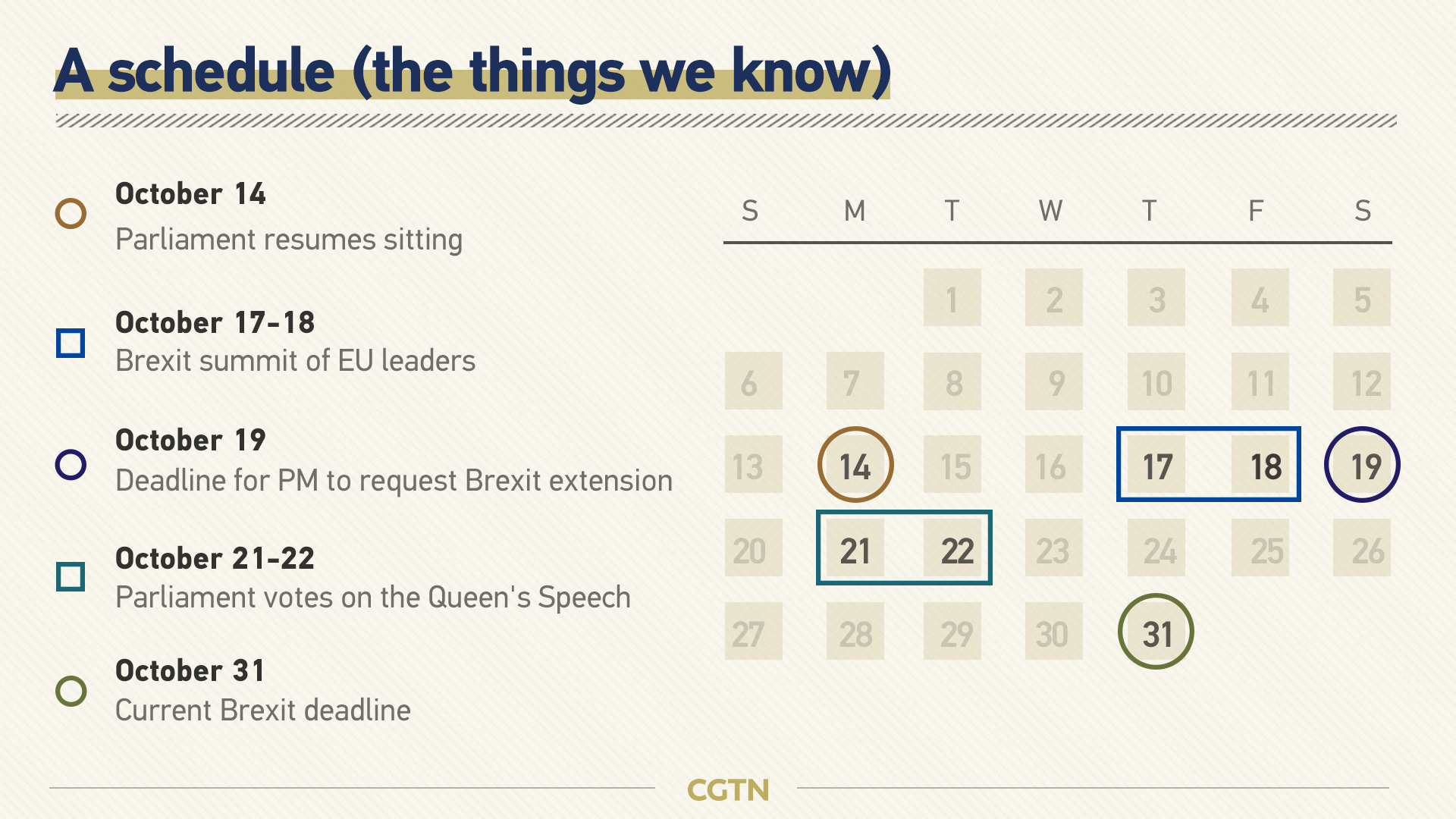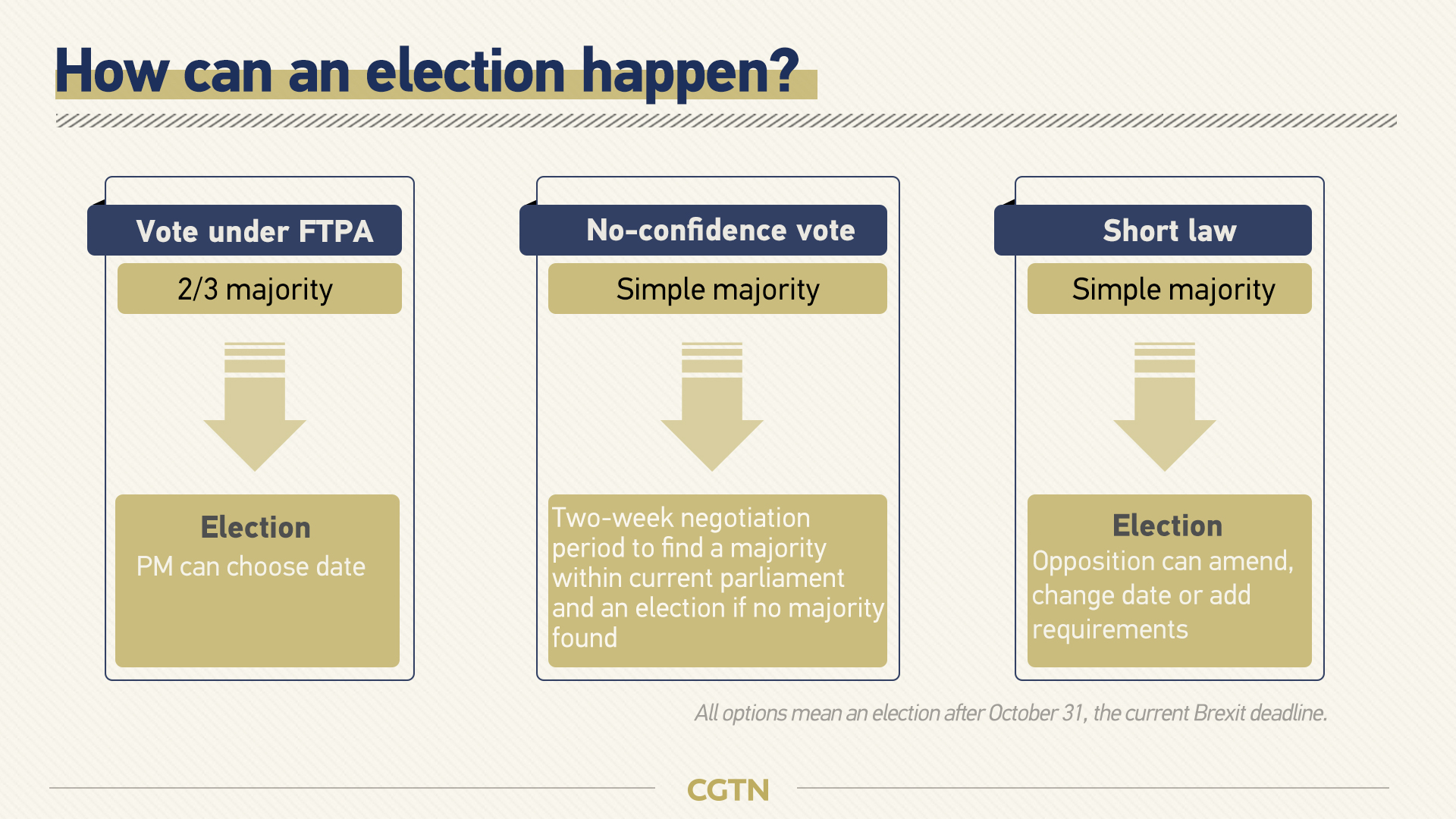

Political conference season is underway in Britain, and with an election on the horizon, that means weeks of headline-grabbing announcements and pre-poll positioning.
First out of the blocks are the Liberal Democrats, the pro-European party making a comeback on the back of a stridently anti-Brexit approach.
The Lib Dems, now led by Jo Swinson, recently sought to outflank their rivals by pledging to cancel Brexit if they win a majority at an election expected in late November or December.
Read more:
Ex-PM Cameron slams Johnson over Brexit
The party, which won 12 seats in the 2017 election but has bolstered its numbers with high-profile defections, has virtually no chance of forming a new government alone.
But the motion approved by members on Sunday, which argued that there is "no negotiated deal that could be more beneficial than continued membership" of the EU, is a combination of honest policymaking and high stakes political positioning.
The Lib Dems enjoyed success with a "Stop Brexit" message in the European Parliament elections in May: Both it and the Brexit Party campaigned on opposing absolutist platforms and finished second and first respectively, while traditional giants the Conservatives and Labour slumped.
Under Boris Johnson the Conservatives have adopted a similarly stark approach, but the Lib Dems are targeting over 100 seats with a plan to capitalize on a lack of clarity in Labour's position and sway Remain-supporting Conservative constituencies.

Newly-elected Liberal Democrat leader Jo Swinson (right) and Welsh Liberal Democrat leader Jane Dodds (left) arrive at the Castle Hotel in Brecon, Wales, August 8, 2019. /VCG Photo
The strategy is not without risk.
While polls suggest a majority of Britons now narowly back remaining in the European Union, that support is often with the caveat of the decision being made via a second referendum.
Swinson has described the move as "bold" and there's a danger the Lib Dem policy may scare off some voters who would have backed a "second referendum then remain" pledge, and will doubtless lead to the party being labeled "undemocratic" by rivals.

However, the stance is indicative of a changing Brexit situation.
If Prime Minister Johnson is unable to deliver an exit from the EU on October 31, the Lib Dem approach makes canceling Brexit, via a referendum, a very real prospect.
Why? A possible scenario goes like this:
The Conservatives hold a lead in all recent polls, but a post-October 31 election with Briton still in the EU would likely see a weakened Johnson lose votes from Leave voters to the Brexit Party.
The Labour Party has so far put forward a convoluted Brexit policy which might involve a second referendum. Neither it nor the Conservatives have a strong chance of winning a majority, so a governing alliance of some description is probable.
Only the Democratic Unionists would be willing to deal with the Conservatives, whereas the Scottish Nationalists and the Lib Dems – both likely to make major gains – may deal with Labour.

Swinson insists, perhaps burnt by the 2010-15 coalition with the Conservatives, she would not enter a coalition with Labour leader Jeremy Corbyn – but if stopping Brexit were the prize, a loose understanding is not unrealistic.
By going into an election with a "cancel Brexit with a majority" pledge, the Lib Dems are setting up for a pact with Labour with a second referendum as the price.
The options on the ballot would be the first of many challenges, but with a referendum, everything changes. Even Cabinet minister Nicky Morgan admitted at the weekend that she would back staying in the EU if there were a new poll.
And that's why it's so vital to Johnson and the Conservatives that Brexit is delivered on October 31.
The prime minister plans talks with European leaders, including Commission President Jean-Claude Juncker on Monday, to discuss a possible deal and is expected to reiterate that he will not request an extension under any circumstances.
But if Johnson fails to follow through on his promises, a credible route to cancelling Brexit altogether will quickly open up.

Copyright © 2018 CGTN. Beijing ICP prepared NO.16065310-3
Copyright © 2018 CGTN. Beijing ICP prepared NO.16065310-3